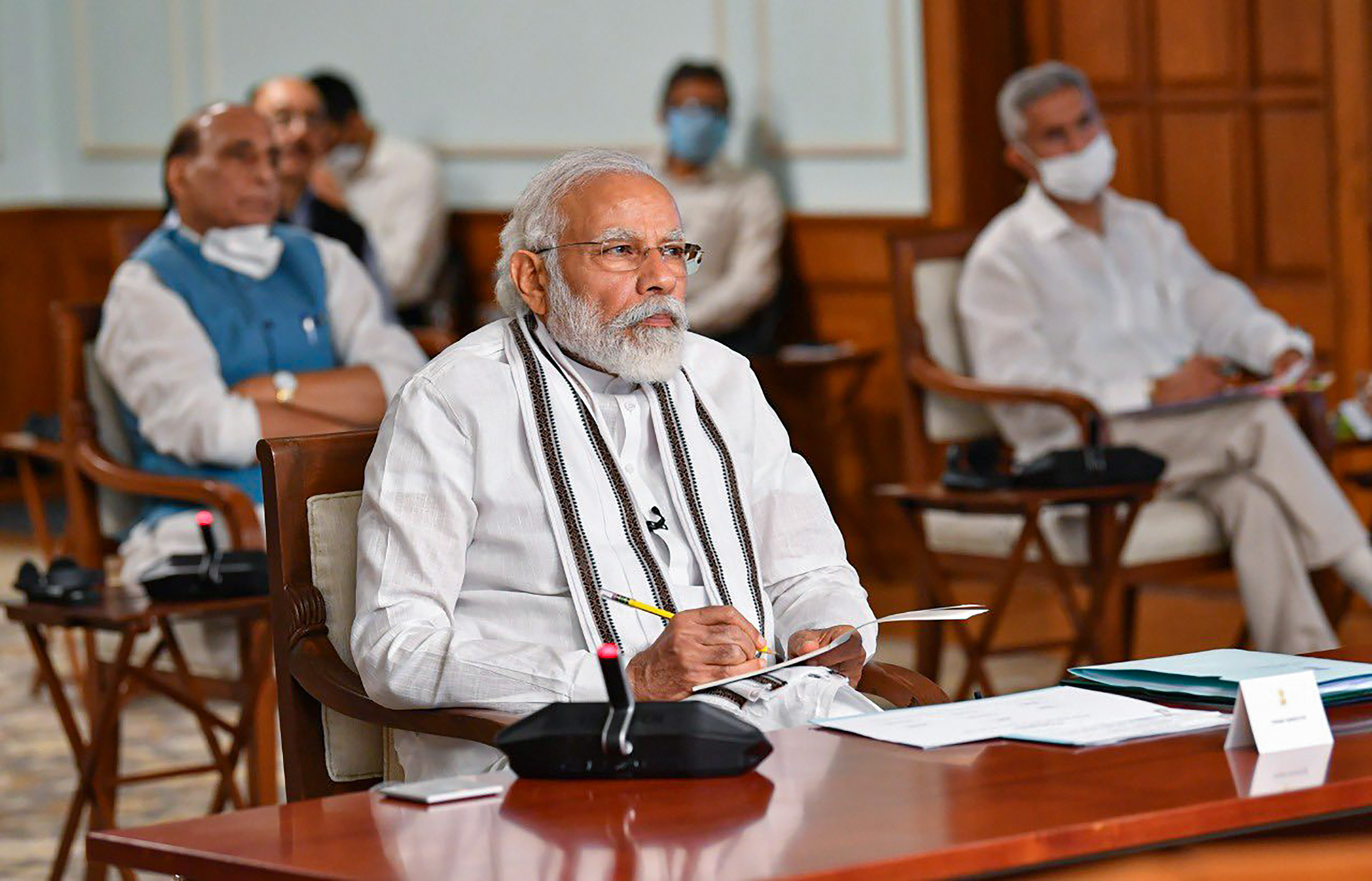While addressing a recent meeting of chief ministers, the prime minister, Narendra Modi, stated that one of the legacies of India’s battle against the coronavirus pandemic would be the nation’s untainted spirit of cooperative federalism. But a shadow often falls between the prime minister’s lofty assurances and the deeds of his government. Take, for instance, Bengal’s exclusion from a Central scheme worth Rs 50,000 crore to provide jobs for migrant workers who had been forced to return to their respective states after a hastily announced lockdown. The Garib Kalyan Rojgar Abhiyaan, which is expected to be operational in 116 districts spread across Bihar, Uttar Pradesh, Madhya Pradesh, Rajasthan, Jharkhand and Odisha, reportedly targets those districts that have received over 25,000 migrants. Going by this criterion, Bengal should have been eligible for the project. At least six districts in the state — Malda, Murshidabad, Birbhum, Cooch Behar, the South 24 Parganas and Purulia — have played host to such returnees. Yet, Bengal was not even asked by the Centre to send the list of districts eligible for this welfare scheme.
The problem, predictably, lies with the model of welfarism in India. Competitive populism has ensured that public welfare is perceived through the lens of political imperatives only. The word is that Bengal’s exclusion may have something to do with the fact that the state government — the Trinamul Congress is at the helm — had resisted the implementation of such Central initiatives as PM Kisan and Ayushman Bharat. This culture of political retaliation had been evident in other ugly forms in recent times. Mamata Banerjee’s party has been at the receiving end of several, often imaginary, charges from the Centre, ranging from Bengal’s apparent refusal to allow the entry of trains carrying migrants to its handling of the Covid-19 crisis in the state. This in spite of the fact that the state has put its best foot forward in the fight against the contagion notwithstanding the limited resources at its disposal. The Bharatiya Janata Party’s finger-pointing, undoubtedly, has to do with electoral compulsions. Bengal goes to polls next year. Distorting the public perception about Bengal can be an effective weapon under the circumstances. Federalism is predicated upon the principle of cooperation. This element has gone missing in the Centre-state relationship in recent times. This erosion of trust and collaboration would undermine public welfare to a great extent.











